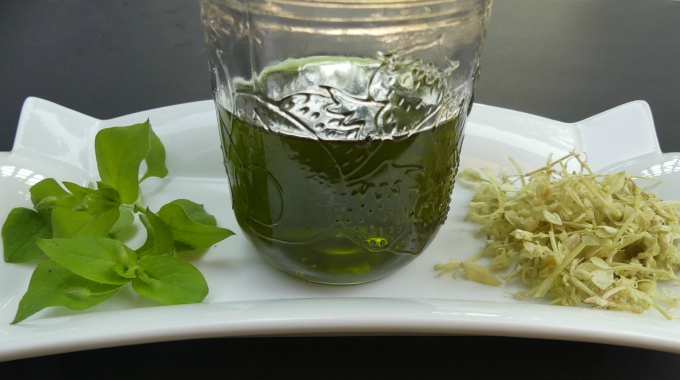Once you have eaten chickweed it may quickly become one of your favourite wild plants to add into salads or sandwiches. Chickweed tastes fresh and it very healthy for you. This incredible plant contains calcium, iron, magnesium, manganese, selenium, silica, sodium, phosphorus, potassium, and zinc, plus vitamins A, B1, B2, B3, and vitamin C.
Medicinally it can applied topically for relief from common skin conditions like eczema, as well as for treating minor cuts, burns, and inflammations. Chickweed can be used as general tonic to support kidney and liver health, and is also helpful for addressing common stomach issues, and promotes good digestion. In order to preserve the mineral and vitamin content of this plant, it is best to infuse the fresh plant in organic apple cider for 6 to 8 weeks.
Tincturing 101
There is no shortage of websites that sell chickweed tincture and often in the plant description, the mineral and vitamin content is given. However alcohol extractions tend to only extract everything from the plant but the minerals. (I am not sure about vitamins.)
A tincture is an alcohol extract of a plant, made using varying alcohol percentages. Some say to always use 50% alcohol (vodka) in order to get equal parts water and alcohol, and some say to always use 94% alcohol. Others tailor the alcohol percentage to the herb and its particular constituents. Tinctures are generally a very concentrated and convenient form to take an herb, and they have a long shelf life. Another benefit of a tincture is that you have a high control over the dosage. 20 percent alcohol is the minimum requirement for shelf-stability.
Tincture Making Methods
Folk Method – Cut up fresh plant material and fill a jar to the top, packing it in well but not too hard. Fill to the top with 50% alcohol vodka and allow to infuse for 4-6 weeks. With dried plant material – fill the jar one quarter to one third of the way with dried plant material (maybe a little more if it’s fluffy) and fill to the top with vodka. Allow to steep for 4-6 weeks.
Ratio Method – Cut up and weigh plant material. Put in a jar and add the appropriate amount of water/alcohol mixture (at your preferred % abv) to achieve desired ratio. For example: if you have 4 ounces of fresh herb in the jar and want to make a 1:2 ratio, add 8 ounces of menstruum. You can also measure grams: millilitres if you choose. 1:2 is ideal for fresh plant material and 1:5 is common for dried plant material. Folk method often turns out to be 1:5 or more dilute with fresh plant material.
Percolation Method – This can only be done with dried, powdered herb. The herb is packed evenly into a funnel which sits in a container, and the menstruum is then poured over the top to slowly percolate through the powdered herb. The benefits of this method is that it can make a tincture in 1 to 2 days, instead of 4 to 6 weeks. It also does not require any straining or squeezing. However, this method ends up failing more often than not for many people.
Wine Extraction – Wine is a traditional menstruum, though not often used today. It has a long shelf life and extracts as a dilute alcohol. Wine can also be made using medicinal herbs as a method of preserving these herbs (as opposed to soaking the herbs in already made wine). White wines were more often used traditionally due to the high tannin content of red wine, which may interfere with alkaloid rich herbs.
Chickweed Tincture
Many herbalists add anywhere from 4 to 20 drops of chickweed tincture into their daily diet. Smoothies is one option as to where to add this tincture. Taking a couple of drops under the tongue three times a day can help our health in many ways as well.
Chickweed tincture can be used as general tonic to support kidney and liver health, and it is also helpful for addressing common stomach issues, and promotes good digestion.
Always remember that tinctures are intended to be taken by drops, NOT teaspoons. Although the tincture is a good thing, too much of a good thing can be a bad thing.
Whether you choose to enjoy chickweed as a food or want to enjoy it for its health-supporting abilities via a tincture, it is certainly one wild plant to consider adding into your daily diet.
For more information please refer to:





Awesome info! I love chickweed and never thought to make tincture!